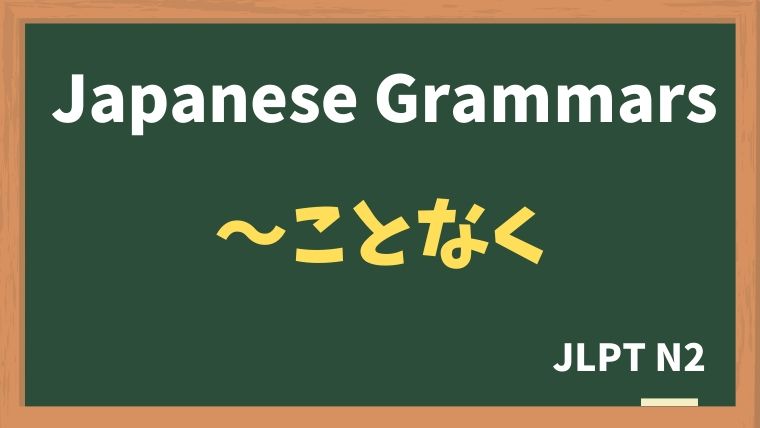
Explanation:〜ことなく
fa-check-circleMeaning
"〜ないで"
"without"
Used to indicate that something happens without performing a certain action. It is often used in formal contexts and emphasizes that an event or action was completed without interruption or without experiencing a particular situation.
fa-check-circleForm
V(dictionary form)+ ことなく
fa-check-circlePoints
- Formal usage: "〜ことなく" is more formal than its casual equivalent "〜ないで."
- Without doing something: It expresses that one action occurs without the interference or occurrence of another action.
- Smooth completion: It often implies that the main action was carried out smoothly or continuously without the mentioned action.
fa-check-circleJLPT Level
N2
fa-check-circleNote
Frequently used in written language.
Sample sentenes
彼は土曜日と日曜日も休むことなく、毎日働いている。
He works every day without taking a break, even on Saturdays and Sundays.
飛行機は遅れることなく、時間通り出発した。
The plane departed on time without any delay.
トムさんは誰にも相談することなく、国へ帰ってしまった。
Tom went back to his country without consulting anyone.
仕事でトラブルがあって、朝まで休むことなく働き続けた。
Due to trouble at work, he continued working until morning without taking a break.
アンナさんは誰にも理由を話すことなく、学校をやめてしまった。
Anna left school without explaining the reason to anyone.
彼女は迷うことなく、その道を選んだ。
She chose that path without hesitation.
Vocabulary
| Japanese |
English | |
| 相談する | そうだんする | to consult |






